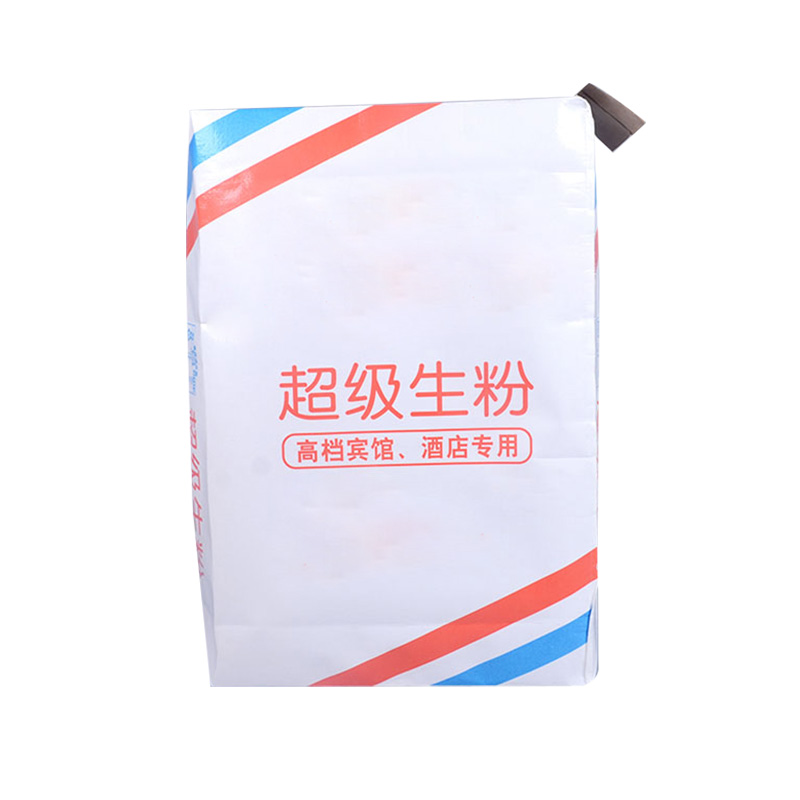PP woven plastic bags are manufactured from polypropylene fibers, which are woven together to form a sturdy and flexible material. This construction allows the bags to withstand heavy loads and rough handling during transportation, reducing the risk of spillage and loss. The woven structure also enables breathability, which is important in preventing condensation and mold growth inside the bag. Grain storage facilities, distributors, and agricultural producers often choose these bags for bulk storage because they combine durability with cost efficiency.

Another growing trend in grain packaging is the adoption of eco-friendly kraft bags. These bags are made from renewable paper materials and provide a sustainable alternative to conventional plastic packaging. Eco-friendly kraft bags can be used for both inner and outer packaging of grains, offering an additional layer of protection while reducing environmental impact. The use of kraft paper also allows for better printing and labeling options, which can be useful for branding or regulatory purposes. Many grain handlers now prefer a combination of PP woven plastic bags and eco-friendly kraft bags to balance durability, protection, and sustainability.
In addition to structural considerations, the material used for packaging grains must meet safety standards. Paper for packaging food is designed specifically to comply with food-grade regulations, ensuring that the stored grains remain safe for human consumption. When combined with PP woven plastic bags, this paper can line the interior of the bag to provide an extra barrier against moisture and contaminants. This combination is particularly useful for grains that are sensitive to environmental changes, such as rice, wheat, and corn.
Storage conditions also play an important role in grain preservation. Properly stacked and ventilated PP woven plastic bags help maintain consistent airflow, preventing excessive heat and moisture buildup. The bags' strength allows them to support multiple layers, increasing storage space without compromising stability. Furthermore, the use of eco-friendly kraft bags as an inner liner enhances the overall safety and hygiene of the grains, creating a controlled environment that reduces spoilage risk.
The versatility of PP woven plastic bags extends beyond grain storage. They can be used for a variety of dry bulk products, including pulses, seeds, and animal feed. Their resistance to tearing and puncturing ensures that contents remain intact during long-distance transportation, whether by truck, ship, or rail. Meanwhile, eco-friendly kraft bags offer a more sustainable alternative for packaging retail-sized portions of grains, meeting both consumer preferences and regulatory requirements for food safety.
In addition to functionality, these packaging materials support environmental initiatives. Eco-friendly kraft bags are biodegradable and recyclable, reducing the accumulation of plastic waste in landfills. By combining them with PP woven plastic bags, grain storage operations can implement a more sustainable approach without compromising durability or efficiency. Using paper for packaging food as an inner layer ensures that grains are protected while meeting environmental and health standards.
Proper labeling is another advantage of using these materials. Both PP woven plastic bags and eco-friendly kraft bags provide a smooth surface suitable for printing essential information, such as production dates, batch numbers, and nutritional details. This helps maintain traceability and quality control throughout the supply chain. Retailers and distributors can rely on this information to communicate with consumers and meet regulatory requirements, enhancing transparency and trust.
PP woven plastic bags combined with eco-friendly kraft bags and paper for packaging food offer a practical and sustainable solution for grain storage. They provide strength, protection, and compliance with food safety standards while supporting environmental goals. As grain storage and distribution continue to evolve, these packaging options remain relevant for ensuring that grains reach their destination in safe and reliable condition, while also addressing growing concerns about sustainability and responsible packaging practices.


 English
English Español
Español عربى
عربى
